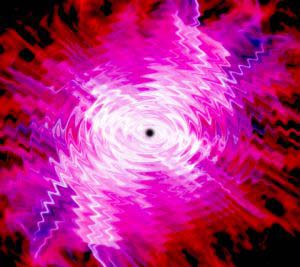Twitter, Personal Growth, Self Discovery and Self Creation

If you’re interested in quotations on Twitter that concern case studies, Self and personal growth, as I tend to be, you start to notice a very interesting to-and-fro of ideas about what it is to grow as a person. If you look closely, you can see that there is a deep division into two distinct camps on a very fundamental question concerning the nature of the Self. We could call one school of thought the “Self Discovery” camp, and the other, the “Self Creation” camp. They seem to have very contrasting ideas about the nature of growth and maturation as a person.
Self Discovery
One kind of Twitter person will emphasize the joys of the adventure of self discovery. The implication here is that the self in some sense pre-exists, that the fundamental nature of an individual human being is there to be known, and that the business of a human is to explore and find what is already there. “You can’t be something other than your true nature”, those who adhere to this view will tell you, “you must find out who you really are, and live in accord with that.” For such people, any attempt to “create yourself” is doomed to failure. A good example of this kind of approach was recently tweeted by OctavioTomas :
Self discovery is one of the hardest things I’ve had to do. Not easy facing the ‘man in the mirror’.
Self Creation
Another whole approach would emphasize that we actually create ourselves through the choices we make, the steps we take, and our will power. A good example of this approach would be this quote tweeted recently by liveaquote:
We can change our lives. We can do, have, and be exactly what we wish..
For a person coming from this perspective, the self is pretty malleable, and it would certainly seem to be subject to the power of the will, to such an extent, in fact, that as individual persons we can “be exactly what we wish”.
These views don’t seem to be readily compatible. So who’s right? Well, as new developments in the emerging fields of neuroscience (as discussed by Lakoff and Johnson) and evolutionary psychology and psychiatry (as discussed by Stevens and Chance, among many others) are refuting the idea that human beings come into this world with no fundamental character. Rather we have a nature that is already substantially determined.
This research supports what CG Jung continually stressed in his work in the first half of last century, that we do have a specific nature, and the task of psychological growth entails coming to the completest understanding that we can of what that nature imparted to us really is. As Jung said vehemently on several occasions “man is not born a tabula rasa (blank slate)”.
So, does that settle it, that, as Popeye used to put it, “I yam what I yam“?
Detective and Gardener
Well, not exactly. We do have a fixed nature with which we come into life, but that’s not the whole story. For, once we get into our lives, we are continually confronted with all kinds of powerful influences on our development and our personality. Our early experience in the family and in the institutions of early life can affect us profoundly. We can find ourselves taken in directions deeply at odds with our true nature. As an extreme example, consider what sometimes happens to extemely gifted, precocious children, where they are forced into molds or patterns that don’t represent who they really are. There is a great deal of creativity and strength that is involved in finding our way back to our own true self nature, and bringing things out of the unconscious so that they no longer control us. Much of this work is often done in the second half of life, and nowadays is often assisted by some form of /a-midlife-transition, like Jungian analysis.
So there is both a process of self-discovery and a process of self-creation that is involved in personal growth. There is also a third thing, which is perhaps the hardest for contemporary western people. And that is the process of allowing our true selves to emerge, waiting on ourselves — almost tending ourselves.
What Is Growth Like for You?
Have you had experiences that you would describe as “experiences of self-discovery”? Or, again as “experiences where I created or re-created (!) myself”? How about experiences of watching yourself grow, and emerge? I’d be very interested to hear from you about such experiences in your comments, either below, or via confidential email.
Wishing you the fullness of growth, and the depth of experience of yourself, on your personal journey to wholeness,
Brian Collinson, Psychotherapist & Jungian Analyst
[cta]
1-905-337-3946
PHOTO CREDIT: © Melissa King | Dreamstime.com
© 2011 Brian Collinson


jamenta
“Know Thyself”
-Inscribed over the Greek oracle at Delphi
Robert G. Longpré
Brian, I have to agree that it isn’t A or B (self-discovery vs self-creation). In discovering bits of self, one creates a different awareness of self and a different way of being in the world. Thanks for considering the impact of technology on the psyche.
Brian C
Thanks for your comment, Robert. I think what you say is precisely right: “In discovering bits of self, one creates a different awareness of self and a different way of being in the world.” Self-discovery and Self-creation are definitely not either / or. A different awareness of who we are often leads in turn to a different attitude to our own being, and a different way of living it out. Also, there is always the dimension of the the unexpected, of gift involved in the uncovering of who and what we are. We cannot totally predict what we will become, and that’s the journey.